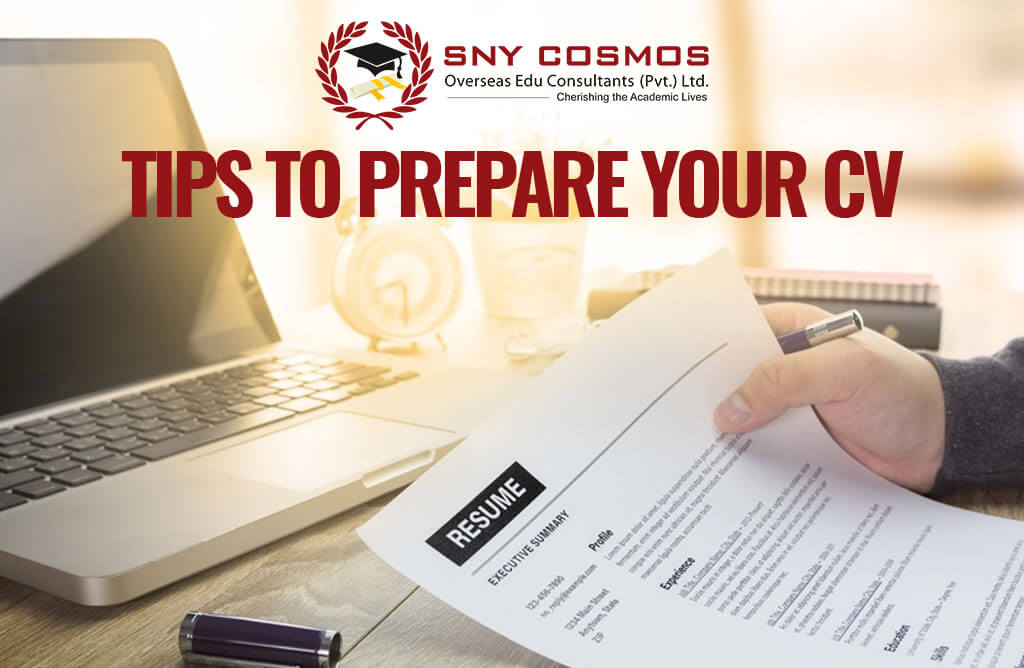Top Tips to Write the Best Statement of Purpose

In the globalized world of today, students who want to access top-notch academic programs, expand their horizons, and experience other cultures are increasingly choosing to pursue higher education overseas. However, with strict requirements and fierce competition, the application process to universities overseas can be intimidating. The Statement of Purpose (SOP) or motivation letter is one of the most important parts of an application package. Applicants can use this document as a platform to communicate their academic accomplishments, life experiences, desired careers, and reasons for pursuing a specific program at a particular university. We will go over the key components of your SOP in this in-depth guide, as well as techniques for creating an engaging story that makes you stand out from the competition.
Introduction to the Statement of Purpose (SOP)
A vital part of the application packet for institutions overseas is the Statement of Purpose, sometimes known as a motivation letter or personal statement. Admissions committees can learn more about applicants' personalities, goals, and fit for the school by giving them a chance to describe themselves in addition to their academic records and test results. The SOP gives you the chance to express yourself to the university and is a reflection of your academic and professional experience, showcasing your accomplishments, strengths, and future objectives.
Understanding the Target Audience
It is crucial to comprehend the traits and demands of the target audience, which is the admissions committee, before beginning to draft your SOP. These committees, which are responsible for reviewing thousands of applications annually, are made up of administrators, faculty members, department heads, and occasionally current students. They look for individuals who have true enthusiasm for their chosen topic of study, intellectual curiosity, leadership potential, and a track record of academic performance. Making your SOP align with the institution's goals and values can greatly increase the likelihood that your application will stand out from the crowd.
Preparing Before you Write
Before you put pen to paper (or fingers to keyboard), pause to consider your educational and personal experiences. Understand the mission, faculty specializations, and academic offerings of the university and program you are applying to by doing some research on them. Determine the qualities, shortcomings, and special events that have influenced your academic and professional success. Think about how they suit the objectives of the program and the university you are applying to, how the program and the university fit your research and career ambitions, and what makes you a good fit for both. Consider the experiences and skill sets you will bring to the class that will make it special.

Structuring your SOP
A well-written SOP should flow from an engaging story that draws the reader in and clearly conveys your credentials and reasons for writing. Generally speaking, there are three primary sections to the SOP:
1. Overview
Start with a compelling introduction that explains the goal of your SOP and draws the reader in. This might be a first-hand narrative, a pertinent quotation, an intriguing topic, or early life events that influenced your decision to pursue a certain field of study. Give the reader a clear understanding of why you applied to the program and give a synopsis of the remaining portion of your statement.
2. Body
This section, which comprises the majority of your SOP, delves into your educational history, individual experiences, professional aspirations, and reasons for selecting the program and university, as well as personal experiences and career objectives. Provide concrete examples and anecdotes to support your arguments and showcase your experience. This part should be rationally organized, with smooth transitions between themes that preserve coherence and clarity. Be succinct and precise.
3. Conclusion
Summarize your main ideas and restate your passion for the program and organization to close off your SOP. Thank you for the application opportunity, and indicate that you are prepared to make a valuable contribution to the academic community. Leave the reader with a lasting impression by concluding on a positive note.
Essential Elements to Include
Let's now examine more closely the crucial components your SOP ought to contain:
1. Educational Background
Draw attention to your academic accomplishments, pertinent coursework, research projects, published papers, and any accolades or distinctions you may have won. Talk about any obstacles you have conquered and how they have helped you improve both academically and personally. In your selected field of study, highlight your enthusiasm for learning and your insatiable curiosity.
2. Individual Experiences
Talk about how your interests and abilities have been shaped by your extracurricular activities, internships, volunteer work, and part-time jobs. Emphasize your experiences leading teams, working with others, taking the initiative, and being creative. These encounters shed light on your personality and show that you can succeed outside of the classroom.

3. Aspirations and Career Goals
Describe your long- and short-term professional objectives and how the program will help you reach them. Talk about any relevant internships or professional experiences that have shaped your career path. Demonstrate a thorough comprehension of the problems and trends facing your industry as well as your future goals for contributing to it.
4. Reasons for Selecting the Program
Describe your interest in the particular topic of study, your academic background, and how it fits with the goals of the program. Talk about any particular classes, instructors, or research opportunities that drew you to the course. Show that you are aware of the facilities, resources, and curriculum of the program and how they will help you advance both academically and professionally.
5. Fit with the Institution
Emphasize the institution's distinctive qualities and the reasons you think it is the best fit for you. Talk about its research facilities, school culture, academic reputation, and any other aspects that align with your values and interests. Demonstrate that you understand what makes the institution unique and that you have completed your homework.
6. Research Interests: (for Programs that Rely on Research)
Provide a description of your research interests, methods, and prospective contributions to the field if you are applying to a program that relies on research. Mention any academics or research facilities whose interests coincide with your own, along with your hopes for a working relationship. Be passionate about adding to the body of knowledge in your profession and supporting current research initiatives.
7. Cross-cultural and Global Experiences
Highlight any exposure to other cultures or cross-cultural experiences you have had, such as studying overseas, taking part in cultural exchange programs, or volunteering in multicultural areas. Talk about how these encounters have improved your communication skills, extended your viewpoint, and equipped you to succeed in a multicultural learning environment.
Your statement of purpose will be distinctive and stand out from the crowd if you have carefully considered every necessary component and prepared it yourself. Since international colleges have seen hundreds of student SOPs over the years, they are able to readily detect the passion and work put into the statement of purpose, which serves as a source of motivation. Retain it unique.

Strategies for Effective Communication
To make sure that your SOP stands out, it is imperative that you use effective communication tactics in addition to the fundamental parts covered above. Here are some tactics to think about:
1. Be Sincere and Introspective
Instead of sharing generic or cliched terminology, give real experiences and thoughts that really represent who you are. Think back on your life's experiences, triumphs, and setbacks to see how they influenced your ambitions.
2. Highlight your Individuality
Bring your distinct voice and viewpoint to your SOP so that it reflects your individuality. Make your SOP unique and interesting by illuminating your traits, passions, and driving forces with tales and examples.
3. Be Brief and Explicit
Write without needless jargon or technical vocabulary in an orderly, succinct, and clear manner. To effectively communicate your thoughts, use plain language, and make sure that your SOP is simple to read and comprehend.
4. Show your Enthusiasm
Demonstrate your enthusiasm for both the program you are applying to and your chosen field of study. Express your excitement about the chance to interact with eminent academics and researchers in your field while studying overseas.
5. Request Feedback and Revision
Seek input from peers, instructors, or mentors before completing your SOP. They can offer insightful criticism and recommendations for development. Make several revisions to your SOP to make sure it is functional, coherent, and clear.
7 Common Pitfalls to Avoid
Writing a Statement of Purpose (SOP) for an international university application necessitates careful attention to detail and deliberate consideration. Good things come from hard work and patience; effective SOP doesn't come from quick fixes. However, candidates should be aware of and make an effort to avoid a few typical mistakes. The following are a few of the most common pitfalls:
- Placing too much focus on accomplishments without considering their importance or connection to your objectives.
- A tale that is hard to follow because it lacks organization or coherence.
- Using words that are too general or cliched to set you apart from other applicants.
- An overemphasis on personal struggles without exhibiting fortitude, development, or lessons gained.
- Ignoring specific directions from the institution, such as word restrictions or formatting guidelines.
- Using AI technologies to express your motivation.
- Copying text from online sources, results in plagiarism.

Conclusion
Creating an effective Statement of Purpose is an important step in the application process for institutions overseas. By embracing the key aspects described in this guide and adopting effective communication tactics, applicants can improve their chances of standing out to admissions committees and gaining acceptance to their desired schools. Remember to begin early, do extensive study, and solicit opinions from reliable experts throughout the process. With proper planning and thinking, your SOP can effectively and persuasively present your qualifications, objectives, and motivations.
Finally, the SOP acts as a link between your previous experiences and your future goals, allowing you to offer a cohesive narrative that illustrates your preparation for graduate studies and your ability to make substantial contributions to your chosen profession.
Approach the SOP as a time to share your narrative, highlight your abilities, and demonstrate your enthusiasm for learning and exploration. With diligence, creativity, and sincerity, you can create a captivating SOP that distinguishes you and lays the door for success in your academic journey abroad.










































































